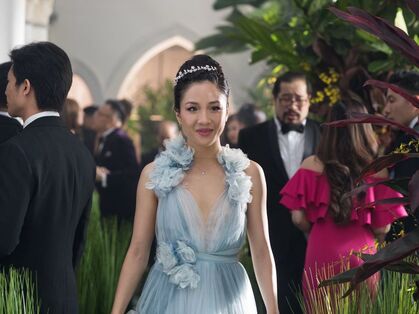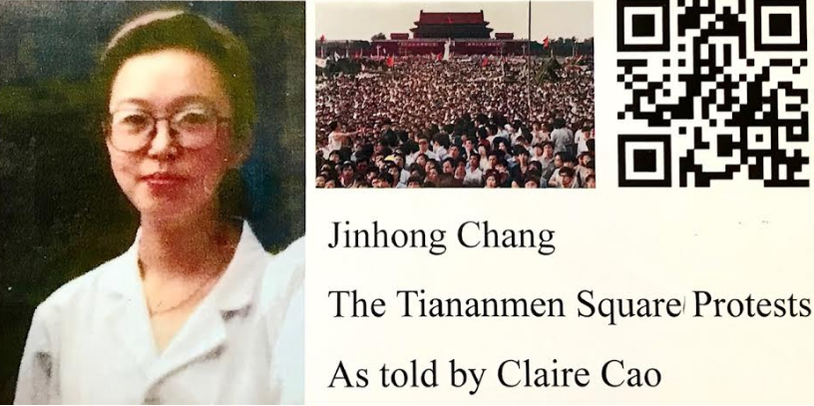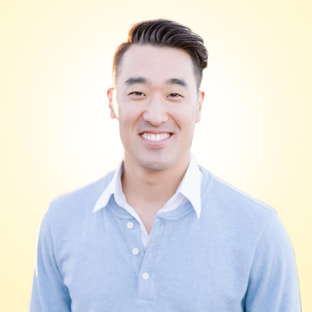 pic/littlemix/instagram pic/littlemix/instagram Social media is taking the world by storm, and it has for the past decade. Isn’t it strange to think that people used to live in a world without phones, texting, or scrolling through posts? I feel like our generation has become so disconnected with the world around us—and yet we act like we aren’t by expressing our beliefs through pixels on a screen rather than through actual movement and action. Granted, this may sound a bit hypocritical as I am typing these words criticizing other people typing words criticizing other people. Unfortunately, this has become the staple way to voice your thoughts and opinions instead of actually talking to people. Crazy. The reason I bring this up is something I recently saw. People gathering under a post about Little Mix’s recent clothing deal with PrettyLittleThing. In case you didn’t see this news: Little Mix dropped a new clothing line in a collab with clothing brand PLT. In their launch post, they said, “our collection with prettylittlething lands THIS Thursday.” Their clothing line, depicted in the picture on the right, seems to be inspired by Chinese Traditional qipao (旗袍) that originated in Manchu, China in the late 17th century. People were quick to criticize the band’s use of “our”, outraged and saying that the style of outfits was not theirs, and they failed to mention the history behind the qipao-inspired outfits. Quickly, comment sections filled up with one criticism after another, and support appeared in heart-shaped pixels under each comment. My point in this article doesn’t focus on cultural appropriation (although check back soon for an article about that) even though it is a big issue today. Rather, I’m focusing on the global problem of social deviance and norms. When everyone is criticizing Little Mix, there are few who will openly defy that, because they will face backlash and hate comments as well. When did it become okay in our society to hide verbal abuse behind “a protest against cultural appropriation”? Some of the comments state, “fu****g disgusting luvs” and “y’all better educate yourselves you real dumb bi***s”. The qipao and Chinese culture may not be a universal thing, but kindness certainly is. My point is: protesting cultural appropriation and preserving your culture is helpful, empowering, and important. However, doing it in such a manner that instead of focusing on educating about the culture and the issue, you are demeaning and spreading hate for those who have exhibited or contributed to the issue is not the right way to do it. Education is always better than hate. The next time you have something to protest, do it in a mature, sophisticated way that will convey a message to the public instead of sparking hatred. Spread love, educate, and empower. Author: Carina Sun submit your experiences/stories: make a declarasian
0 Comments
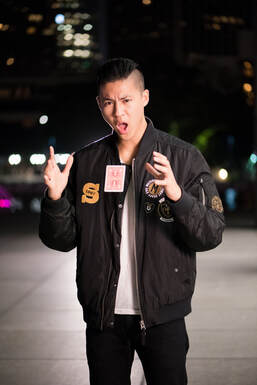 "Kevin Li" Image credit: www.kevinlimagic.com "Kevin Li" Image credit: www.kevinlimagic.com Since I was a little girl, the world of magic has been steadily enticing. I grew watching Disney Channel's Wizards of Waverly Place, a show that was not only entertaining to watch, but that created such a rich universe of magic and the mundane world. Similarly, the whimsical feeling of getting whisked off to Hogwarts on a magical train by running through a brick wall was so captivating to my imaginative mind, and I for as long as I can remember, I thought it could be real. When I saw Kevin Li's performance on Penn and Teller's show, Fool Us, I couldn't believe my eyes. This was it. My entire childhood had been confirmed. Magic was real. That aside, it was also a moment of inspiration for me to see an Asian-American standing on that stage, achieving something so incredible and doing it in such a smooth and professional fashion. So, I knew I had to reach out to Kevin and ask about how he felt during that experience, and learn what he hopes to tell other young people about following their dreams and defying expectations. Huge thanks to Kevin Li for taking the time to interview with us! 1. Growing up in an Asian-American household, did you feel any pressure from those around you when you decided to pursue magic and illusion as a career? How did that change?I felt that my parents weren't proud to tell relatives or their friends that I wanted to pursue a career in magic. No one in my family has ever done entertainment full time, so there was no one to compare me to. At the same time, many of my friends were getting job offers left and right to big companies while I continued to create and perform magic. Timing made a huge difference when it came to deciding that I wanted to go full time with magic. 2. What made you realize that you wanted to become a magician?It was the feeling of true astonishment that I felt when I first witnessed magic in person from my grandfather. I loved magic at the get go because people were finally interested enough to talk to this introverted kid. 3. What do you hope to accomplish throughout your career?I want people to believe in what they love to do. It wasn't in my cards to one day become a magician, but I studied and performed every moment I could, and eventually believed in myself so much that those who didn't started to as well. I want people to remember me as a kid who told stories to the world using magic, which one day will inspire them to tell theirs while doing what they love. I hope they understand that they should test different fields to one day find the one that they fall in love with. After that, they should ask themselves how they could push that industry further, where no one else has pushed yet. 4. Did you/do you still face any prejudice for being an Asian-American in the field?People easily compare me to other Asian magicians, as being an "Asian Magician" is already a niche with a niche. They assume that I may do a certain type of magic which uses heavy dexterity and sleight of hand. 5. Did you have to make any sacrifices along the way to get where you are? If so, how did they make you grow as a person?Dedicating time to practice and create was one of the biggest sacrifices I had to make. Time from studying all my work at school, time from going out with my friends, time from binging tv shows, and time with family were all given up in many moments of my life so that I could get to certain milestones. 6. What was your most rewarding part of your recent accomplishment of fooling Penn and Teller? The most rewarding part of fooling Penn and Teller was that I got to showcase a never-before-seen magic routine that was genuinely me. It was created in spite of who I am, what many dream to accomplish, and respected by the masters who have inspired me so much. 7. Lastly, what advice would you give to Asian-American youths still trying to find their own passions?You should believe in your passion or continue to find that passion even when no one else will believe in you. Do your best to learn about your culture because it is a huge part of who you are--and embrace it. This interview was incredibly insightful even for me, so I'd like to personally thank Kevin for his words of inspiration and his unwavering passion for what he is doing. For those of you reading this, take his advice, and find your passions while embracing who you are and where you come from. Make a declaration about how proud you are to be who you are.
You can find out more about Kevin's incredible magic through his website and social media: Instagram: @kevinlimagic Website: https://www.kevinlimagic.com/ Author: Carina Sun When DeclarASIAN was first born in 2017, I had founded it upon the assumption that Asians wanted to stick together against the larger problems, namely discrimination and stereotypes. Now, I worry that we are sometimes being divided by the smaller things. I want to remind everyone that Asians need to support Asians! In the high stress of college application season, I can certainly sense the tension brewing among the Asian community. For many immigrant parents, it's their dream for their children to succeed academically. For the children of these immigrants, it's the constant stereotype that Asians must excel in all they do (or else they are not "Asian enough") that butts them against each other. Disdainful words have been spoken behind peoples' backs as competition reaches an all-time high.
Don't get me wrong, there is nothing wrong with wanting to prosper and succeed. That's the American Dream that so many Asian immigrants want for their children. And of course, I am fully aware that there are only so many fancy jobs or spots at fancy institutions. There's nothing wrong with working hard for the things you want-- especially because that's what Asians do! We are hardworking and industrious people! But when kids are being overworked and pitted against each other, that's when problems arise. I implore you to look at the larger picture. A successful Asian is one who represents our community well! We should be happy for each others' achievements. I think, in the midst of all this stress, we may have forgotten that. But when it comes down to it, we are one, and we need to support each other for it. Author: Claire Cao Between the ages of four and six, my favorite pastime was devoutly watching Disney’s Mulan once a week, every week. I could recite every line of the movie, much to the annoyance of my parents. Despite this repetition, my commitment to Mulan never faltered. I loved being swept into the rice fields and imperial cities of ancient China, where I imagined my ancestors once roamed. I saw myself there, too, for Mulan was the only princess who, with her long black hair and olive skin, looked just like me. She enjoyed the same porridge and dumplings I saw at the table every night, spoke the same painstakingly-difficult Mandarin Chinese I had to communicate to my grandparents with, and sported the same traditional hanfu dress I wore on Chinese New Year. I found comfort in this sense of familiarity, and so I continued watching the only movie I could obtain it from. A keystone of my childhood, Mulan was an intimate link to my personal life and one of the only times I saw myself on the screen. As my first encounter with Asian representation in the media, it shone a profound spotlight on the beauty of non-Western culture—something I’d learn would not occur very often as I grew up. When I was twelve, my friends urged me to watch Breakfast at Tiffany’s for the first time because it was a “classic.” Yet my stomach turned when a white actor portrayed Mr. Yunioshi, a miserable Japanese character whose only qualities were a mishmash of just about every Asian stereotype: taped eyelids, buck teeth, and a sibilant accent. As others giggled, I felt my face burn with shame at this toxic caricature whose sole purpose in the movie was comic relief—to be a joke. I felt like a joke. I couldn’t help but feel like my immigrant parents’ broken English was being ridiculed; that my family’s unique qualities had been distorted by this ugly lens. I had already been feeling insecure about my appearance—as all twelve-year-olds do—and this uncommon depiction of an Asian in Hollywood was anything but flattering. Was this how half my identity would be portrayed to the world? Had this perception of Asians become so accepted that no one else was disturbed by the cruel misrepresentation in such a “beloved” movie? When I was thirteen, I was watching The Voice when an Asian-American teenager emerged among a sea of generic contestants. Her name was Katherine Ho, and her presence on the stage jolted me awake, for it was not every day that I saw a Chinese person on television or in music. My brief “Mulan” moment—that feeling of instant connection—crumbled when The Voice decided to cut out Katherine’s first performance, then her second performance, then her third performance, repeatedly showing the nation only five second snippets of her talent. She clearly never had a chance at winning the show, and she was eliminated before anyone ever heard her sing. Every time Katherine was disregarded by the show, I felt my heart plunge to the pit of my chest—it was the same painful mortification I experienced watching Breakfast at Tiffany’s. As an eighth-grader at the time, I contacted Katherine in the most practical way I knew how: Instagram direct message. In my message to her, I released my internal heaviness by expressing my disappointment about the way she had been represented, to which Katherine responded with a sad appreciation. “I wish you all the best with your future goals!” we had exchanged before we parted ways. Yet I understood the bleak reality for her goals: Katherine would never “make it big.” Fueled by this disappointment and a desire for social change, I patched together my own website, DeclarASIAN, in 2017 to serve as a platform for Asian-Americans to discuss stereotypes and advocate representation in all aspects of the community. Since then, I have had the opportunities to interview Asian-American CEOs, authors, comedians, musicians, Congresswomen, and even a Radio City Rockette. As I try to provoke thoughtful discussion, I’ve also begun to witness diversity in the media make strides on a national level. This summer, I teared up as I watched Crazy Rich Asians, one of the first Hollywood movies featuring an all-Asian cast, for I had the “Mulan” moment I had been yearning for since my childhood. As the end credits rolled, my heart skipped a beat when I saw who sung the soundtrack: Katherine Ho, the young woman who I had consoled back in middle school. Naturally, I recognized her name and contacted her again, this time with a message of congratulations. Katherine’s song has reached Number 1 on Spotify’s Viral 50 Global chart, and my passion for Asian-American representation remains just as strong as when I would watch Mulan over a decade ago. As I watch Katherine’s music career take off and I see Hollywood gradually incorporate more diversity, I have hope that my kids will have more than one movie they can relate to as they grow up. Author: Claire Cao
It finally happened! My first encounter with blatant racial harassment. I had feared something like this for a while by now, playing a hypothetical situation in my head, but I was still taken aback when it actually occurred. It happened on the NYC subway, right as we entered the train from the Times Square station. There was one empty seat left next to an old lady, and I motioned for my mom to sit down. The lady next to us began cursing and sputtering--I could barely understand her--shouting profanities and Asian slurs. I was unsure what was happening at first and grabbed a nearby pole in front of the lady to keep my balance. That was when she lost it: she began screaming at us, calling us terrible names I refuse to repeat, accusing us of not speaking English, saying we should go back to China or go to hell. In the moment, I was terrified. I was embarrassed, angry, and unsure of what to do. So I said nothing and ignored her. After a few minutes, she got off the train, grumbling to herself. It was a train full of people, and not one person said anything to help me out. Maybe it's the bystander effect, and I totally get it, but it reminded me why I created DeclarASIAN in the first place: to give good people a voice. The real world is crazy. Sometimes ignorant, and sometimes ugly. Call me overly optimistic, but there is a lot of change to be made. And I believe it can be done! Author: Claire Cao
Constance Wu's iconic blue dress from Crazy Rich Asians will be displayed in the Smithsonian Museum of American History. I cannot emphasize that enough! Let me say it again: The famous dress. From the first movie in decades with an all-Asian cast. Is going to be displayed in the most coveted history museum. In the United States. Catch this groundbreaking costume next to Dorothy's ruby slippers. This is truly a major step forward for Asian representation in the media and is indicative of just how monumental this movie has been. It's nice that Asians are finally being put in the spotlight-- and not just as nerds or sidekicks. Author: Claire Cao If you weren't already aware, my mom is a total badass. The year is 1989. She's a medical resident studying at Peking University in Beijing, China. There is widespread unrest against the government. Pro-democracy protests are gaining support. So like the badass she is, my mom decides to participate. Hear her tell her incredible, saddening, and fascinating story in the oral history project below. It was made to commemorate the upcoming thirty year anniversary of the Tiananmen Square protests. You can scan the QR code with any scanner app or Snapchat! Author: Claire Cao
Dear Fake Chinese Food, I've been seeing you around town quite a lot recently, particularly in food courts and restaurants. I mean no offense in calling you fake, but the truth is that slapping on loosely related "Chinese words" onto another word doesn't mean it is Chinese, nor is it accurate most of the time, as we all know that pandas don't move fast and this does not give you "express" food. Plus, you have a terrible naming system: Chinese thing + adjective. Golden Dragon, Lucky Panda, etc... It's not creative, nor is it good-sounding. Why not try something else? Now, I want to talk to you about my primary complaint, being that you are not actually "Chinese." I wouldn't say I am an expert, but I can say that "Sichuan chicken" and "Hunan beef" do not exist, as 1) people in Sichuan have over a hundred ways of making chicken, rendering it impossible to generalize, and 2) putting sweet and sour sauce on fried chicken and beef is not a practice that is found anywhere but America. I am tired of your bootlegging, Fake Chinese Food. You have ruined the definition of "Chinese" in culinary arts in America with your fried sweet and sour chicken, beef, and pork (excluding lamb, for some reason). You have cheated countless dollars off of unsuspecting customers looking for the real deal who were not able to tell by the restaurant name. You have generalized the Chinese cuisine with over hundreds of thousands of dishes into the menu that every fake Chinese food restaurant shares. But no, you won't stop. You never will. You have invaded and are now seeping deep into American culture. Even my school cafeteria has been influenced. They have learned the ol' "sweet sauce" and "fried rice" trick, even though the chicken was clearly popcorn chicken before the sweet bath, and the rice was never fried, but only dipped in soy sauce. You will continue doing so until you either drain our wallets, or we find out your dirty trick. Author: Kevin Liu Editor: Claire Cao Editor's note: This piece was written by one of my best friends, Kevin. He is no longer with us on this earth, so I thought I'd share this little piece that so perfectly encompasses his humor and cleverness. We had joked about fake Chinese food so many times over the years! Might I also mention that English was his second language, and that he had only been studying in America for a few years before he wrote this? Simply... wow.
Kevin, I am humbled to have known you. You will always represent the very best of the Asian-American community. I hope you're enjoying some real Chinese food up there in heaven. See you again someday, Claire My friend made a wonderful point recently. He begged me to tell him how to really pronounce my Chinese last name, as I had told him everyone's pronunciation of it ("Chow") wasn't actually right. "Why should you change your last name to conform to Western culture?" he had asked. "Your name is your name; people should say it correctly." Not gonna lie, I was pretty touched by that. My last name, Cao, doesn't really have a Western pronunciation. The most logical, phonetic pronunciation of it is "cow," which is a common mistake I don't blame anyone for. A lot of people seem to find it really funny and jokingly call me "cow," which doesn't really offend me, but my friend's words got me thinking: Why not share the real pronunciation? "Cao" is actually pronounced "ts-awh." And if you're curious to hear someone say it, I've linked it down below. My friend was right: It's time I finally start taking control of my identity and heritage! Author: Claire Cao
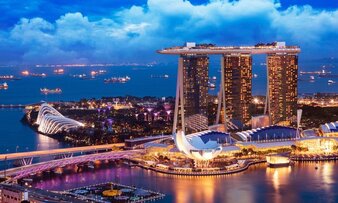 "Singapore" Image courtesy of Law.com "Singapore" Image courtesy of Law.com I spent the first four years of my life in Singapore, where my dad got transferred for a job opportunity. I don't remember a lot about living there, but I do remember the difference I felt when we moved back to America. A lot of people call Singapore the "melting pot" because there are people from all over the world that travel there for opportunities and education. My sister recently traveled there for an internship and she described it as "an *ABC paradise". Because in Singapore, there isn't a "dominant ethnicity". There is so much diversity which creates a welcoming environment. So, you can imagine, moving to America wasn't always easy. Throughout all of elementary school, I tried to avoid having a group of Asian friends because I thought that would make me seem weird to the others. I did my best to kiss up to my white classmates, and I'd feel an overwhelming sense of gratification every time they would invite me to hang out. It didn't help that just when I felt like I was developing a good friend group, we moved again. I was going to be known again as the "new Chinese girl". This self-deprecating mindset I had developed persisted and shadowed me throughout the rest of elementary school and middle school. I always felt like I wasn't cool enough, or white enough, to approach the popular white girls. I felt like they'd never be friends with an Asian. And I blamed it on things like "my mom would never let me host a party" or "I'm too busy studying anyways", when really it was just my own insecurity. In all honesty, I'm embarrassed to be sharing this because I see it as a stupid thing to be insecure about. On the other hand, that's why it's so important for me to share. I know that other Asian-American teens feel like this too, and I just want to let you know that you are no less than anyone else just because of your ethnicity. I have felt those feelings of insecurity and social-anxiety just because of my race, and I can say it's one of the worst feelings in the world. So, I'm sharing my stories through DeclarASIAN so that maybe it'll inspire some of you to feel empowered by your race instead of ashamed of it. Author: Carina Sun Growing up as the only Asian in my grade for seven years of elementary school, I quickly became aware that I did not look like everyone else. Trust me, everyone else around me noticed, too.
I specifically remember in second grade my teacher was explaining the meaning of "china," as in the ceramic material, to our class. To clarify what she meant, she said, "Not Claire-China. Not that kind of china." I understand her intentions, but there had to have been a better way to word that. In doing that, she automatically labeled me as the "go-to" Asian. In other words, I was every person in that class's only example of what a Chinese person should be-- a representative heuristic. One of the biggest factors of white privilege, in my opinion, is the fact that they do not have to worry about how their actions will reflect upon their race. Meanwhile, I felt this burden as a second-grader. It shouldn't have to be this way. Just some food for thought. Author: Claire Cao
We reached out to Daniel for an interview, and he kindly accepted. 1. How did you get the idea to start Pop Danthology? I used to be a very active singer/songwriter who would do a lot of covers of popular songs. There were a lot of other YouTube musicians making their own soulful renditions of songs who sang and played guitar much better than I did, so I figured I had to do something else in order to differentiate myself. I decided to make my covers in the genre of electronic dance music. Since producing this kind of music with so many layers would take a lot of time, I decided to sing a medley of multiple pop songs into one video. Three songs in one arrangement then turned into ten in one. My subscribers were really enjoying it. Some requested “Hey, I own a bar/club and would love to play your mix… not that you’re a bad singer, but I know my patrons would love to hear a mix like this with the original singers. Would you think about making a mix like that?” These requests kept on coming, so I decided to listen and I made my first Pop Danthology in 2010. 2. Has being a minority in America helped or hindered your path to success in any way? I believe all of humankind needs one another to reach their highest potential. And, as humans, we happen to naturally enjoy finding community with like-minded, relatable people. Being a minority has given me the opportunity to connect with so many more people, many people who perceive me to be more relatable simply because of my ethnicity and cultural upbringing. 3. Asians are often contained within a rigid stereotype about who they can be in society, so it’s rare to find them in media and entertainment. As an artist on YouTube, how do you feel about breaking this stereotype? Compared to other Asians, I think I care much less about breaking Asian stereotypes. I live my life doing what I want to do, love to do, and try my best to make things happen, no matter the obstacles that lie ahead of me (including unfavorable stereotypes), not because I care to change people's minds, but because I simply love excellence. The way I live, though, does happen to surprise a lot of people, change their minds about humans in general, and, yes, change their minds about Asians in general too. But humankind's inevitable, uncontrollable, unpredictable tendency to make generalizations is not really a big concern of mine. And for that reason, I dont exactly celebrate when generalizations are temporarily fixed. 4. Young Asian-Americans often feel lots of pressure to pursue “success.” What is your definition of success? Do you have any advice for today’s Asian-American youth? I personally believe that, before we were even born, a good God designed each and every one of us in an amazing way with powerful intrinsic gifts that can positively change the world (make "heaven" a reality on earth). I personally believe that all the difficulties and pains of life though, causes many to fall far from their original design and lose their effectiveness in using their gifts. I define success as having fought through our inner obstacles, living out our original design, and making a positive change in the world. Here at Declarasian, we couldn't agree more with Daniel's advice. Follow your passions and do what you want because that is the only way to live life to it's fullest. Not only does he inspire us to following our dreams, his success is a reminder that if you put in the effort, anything is possible. Thanks again to Daniel for his insightful and inspirational comments! Authors: Carina Sun and Claire Cao
|
Articles2019
1/12/19- RepresentASIAN: Interview with Music Maestro Daniel Kim 2/3/19- Not Your Representative Heuristic 2/20/19- Being Labeled "The Asian Girl" 3/5/19- It's "Cao," Not "Cow," Not "Chow"... 4/1/19- Dear Fake Chinese Food 5/6/19- History Lesson: My Mom Was a Protester at Tiananmen Square 5/24/18- Asian RepresentASIAN Making American History 6/21/19- My First Encounter With Blatant Racial Harassment 7/10/19- Growing Up Alongside "RepresentASIAN" 8/15/19- Asians Need to Support Asians 9/16/19-Making Stereotypes Disappear: Interview with Rising Magician Kevin Li 11/8/19- The Impacts of Social Media |

